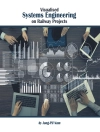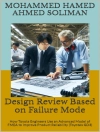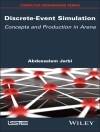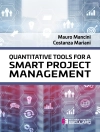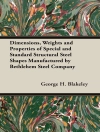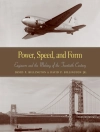This book is an attempt to bring value to the enterprise pursuits in the areas of research and innovation around the specific issues in terms of topic selection, open data resources and researcher orientation. Over the last 300 years, industrial revolutions have had game-changing impact on societies. Presently, by and large, we are at the crossroads of the fourth industrial revolution, where phygital systems are going to play a massive role, where digital systems can simulate and go beyond the limitations of the physical world, thereby enabling a new world order. This transformation is cutting across every sphere known to mankind. The world will become a globally localized marketplace. In today’s business world, sustainability is a corporate agenda. Enterprises are also aiming to be purpose-driven, adaptive and resilient to disruptions. The contributions to community and environment are part of their corporate branding. The book explores and presents a part of the open data sets from government institutions to achieve the sustainable goals at local level, in turn contributing towards global mission. As the topic suggests, the authors are looking at some of the specific issues in the areas of environment, agriculture and health care through the lens of data science. The authors believe that the above three areas chosen have deep relevance in today’s world. The intent is to explore these issues from a data and analytics perspective and identify cracks through which deeper inroads can be made. Conscious efforts have been taken to make use of all the major data science techniques like prediction, classification, clustering, and correlation. Given the above background, deeper waters will be explored through the contents of this book.
Tabella dei contenuti
Chapter 1. Environment-A Fact Based Study using Tree Census and Air Pollution Data.-Chapter 2. Exploring Air Pollution and Green Cover Dataset– A Quantitative Approach.- Chapter 3. Application of Statistical Analysis in Uncovering the Spatio-Temporal Relationships between the Environmental Datasets.- Chapter 4. Environment – A Fact Based Study using Tree Census and Air Pollution Data.- Chapter 5. Analysis & Visualization of Farmer Call Center Data.- Chapter 6. Chapter 6. An Approach for Exploring New Frontiers for Optimizing Query Volume for Farmer Call Centre – KCC Query Pattern.- Chapter 7. Demand and Supply Study of Healthcare Human Resource and Infrastructure– Through the Lens of COVID 19.- Chapter 8. COVID-19 and Indian Healthcare System-A Race Against Time.- Chapter 9. Estimating Cases for COVID-19 in India.- Chapter 10.Multi-facet Impact of Pandemic on Society.
Circa l’autore
Neha Sharma is working with Tata Consultancy Services and is Founder Secretary, Society for Data Science. Prior to this, she has worked as Director of premier Institute of Pune, that runs postgraduation courses like MCA and MBA. She is an alumnus of a premier College of Engineering and Technology, Bhubaneshwar, and completed her Ph.D. from prestigious Indian Institute of Technology, Dhanbad. She is a senior IEEE member and executive body member of IEEE Pune Section. She is an astute academician and has organized several national and international conferences and published several research papers. She is the recipient of “Best Ph D Thesis Award” and “Best Paper Presenter at International Conference Award” at national level. She is a well-known figure among the IT circle, and well sought over for her sound knowledge and professional skills. Neha Sharma has been instrumental in integrating teaching with the current needs of the industry and steering students towards their bright future.
Santanu Ghosh is IT Veteran with over 26 years of experience and Sustainability Evangelist. He leads the Sustainability Ecosystem for TCS A&I unit. He is responsible for the exploration and launch of data & analytics-driven sustainability initiatives in the areas of environment, climate, health and biodiversity for both commercial and community enterprises. His endeavors align with UN’s Sustainable Development Goals and its mapping to Enterprise and Community KPIs. He opines that data plays a critical role in creating data-driven environment-friendly solutions and creating a circular economy by the creation of a knowledge ecosystem. He has been part of many fora promoting his views on environment, climate, community impacts and their relationships with the SDGs.
Monodeep Saha is currently working as Project Lead in TCS for BFSI clients. He has a rich and diverse experience of over a decade in Financial Services Analytics industry, with consulting experience of major financial institutions/Fin Tech in Asia pacific/US/EMEA region. He is Analytics/Machine Learning Expert with industry expertise in Risk and Marketing Analytics space. Mr. Saha has master’s degree in physics from IIT Madras with focus on advanced mathematics and computing. In his spare time, he spends time with family, and loves to read and write. He authors short writeup at various forums covering fiction and non-fictional topics. This book is an attempt to converge his professional skills for greater good of humanity and society at large.


